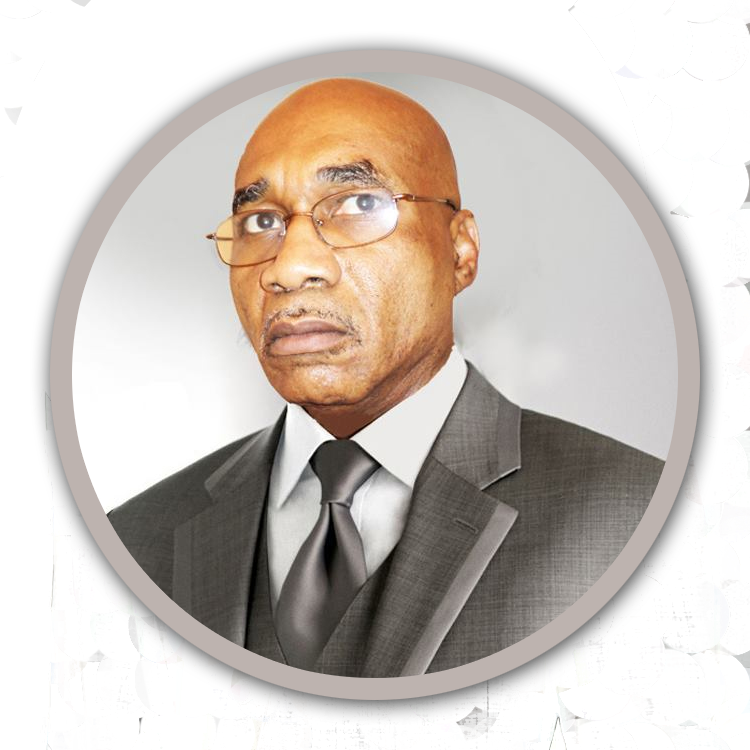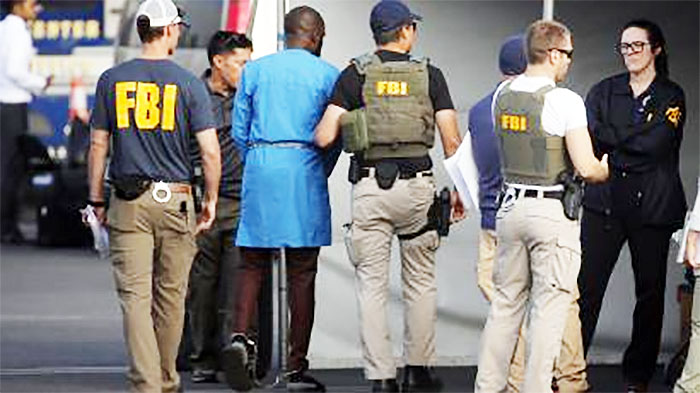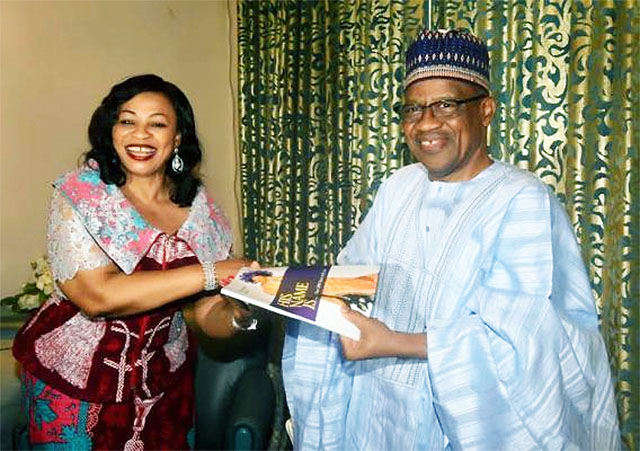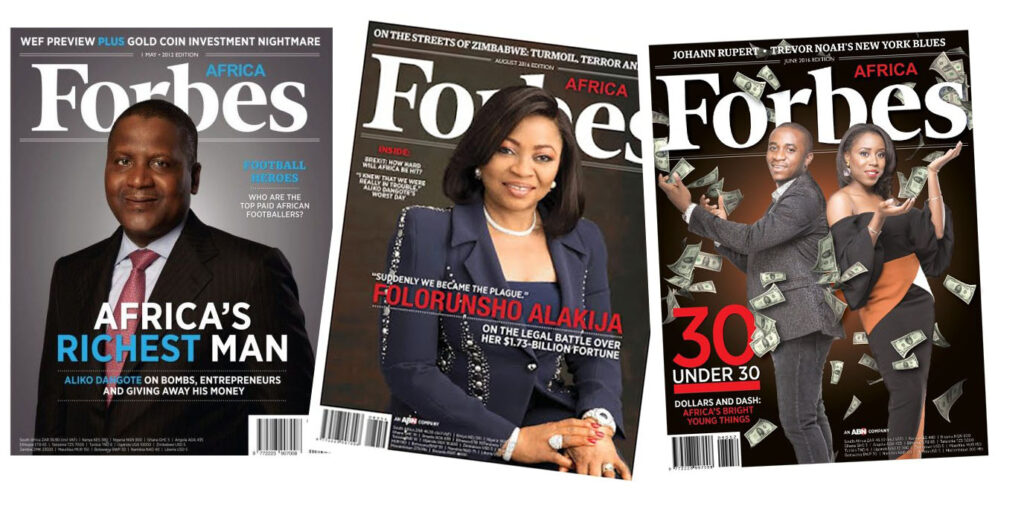Forbes “who-is-who or who-is-Not” series remain a marketing strategy facilitated through a questionable process to woo the highest bidders, but the repercussions are eating deep into their integrity.
A violation of fundamental standards in professional study experimentation is a big deal. In fact, the integrity of all experiments and professional research studies are often preserved by codes for scholarly conduct and ethical behavior implanted to minimize false reporting and other disreputable activities. Given this circumstance, a chain of publications by Forbes using specific experimental ratings to pronounce who is rich or poor among regions, gender, and other categories of businesses is emitting some red signals.

By Anthony Obi Ogbo
However, contradictions and controversies that pervade Forbes research and publications must not just be ignored. For instance, the recent arrest of one Obinwanne Okeke (Forbes 100 Most Influential Young Africans 2018) in the United States by operatives of the Federal Bureau of Investigation (FBI) has validated every suspicion. Okeke, an acclaimed global entrepreneur who has long been celebrated by Forbes was nabbed for allegedly defrauding top American companies of huge sums of money.
For years, Okeke, chairman ‘Invictus Group’ was Forbes-endorsed model for entrepreneurial success. He had appeared on the cover of Forbes Africa who named him one of ’30 Entrepreneurs Under 30 to Watch’. He was one of the featured speakers at the Forbes Under-30 Summit EMEA 2017 held in Tel Aviv and Jerusalem, Israel. This summit convened the greatest young entrepreneurs and game-changers from America, Europe, the Middle East, and Africa to foster world-changing ideas.
In the age of information technology, the major concern remains how Forbes could explain this romance without authentic verification of Okeke’s sources of income.
This article is not intended to attack the fundamental nucleus of the entrepreneurial process or success. In strong words, it is critical of how a few editors can just sit down in an obscure Jersey City office and joggle up figures to control who-is-who or who-is-N

In my last book, Maxima of Political Leadership,” I explained how Forbes controverted its own grading track with study ranks and figures that were inconsistent with reality. I faulted Forbes 2018 World’s Most Innovative Companies because none of the top six made it to the first ten companies listed in their World’s Most Valuable Brands. Thus, it would be hard to explain how Forbes top 7 technology-based most valuable firms (Apple, Google, Microsoft, Facebook, Amazon, Samsung, and AT&T) were not found in its top list of innovative firms. Strange, isn’t it?
To make its activities more distrustful, Forbes has been consistent with its promotion and publication of unscrupulous global merchants with a questionable source of income. The publication would always label their sources of income as “oil and gas” or “self-made.” But the question is, when has “self-made” become a source of 10-figure business income?

This might be the case with this woman called Ms. Folorunsho Alakija who was leading a high-volume offshore scheme. Forbes romanced with Alakija’s wealth without appropriately investigating the ethical matters behind her very source of oil and gas business. Yet Alakija made it to Forbes lists of Power Women 2016, Billionaires 2019; Africa’s Billionaires 2019; with her source of income listed “oil and self-made.”
Forbes further totally failed to investigate that this woman’s wealth was tied to two of the most corrupt regimes in the continent’s history of politics. Alakija’s fashion business was tied to Nigeria’s president Ibrahim Babangida family, whereas her oil and gas ventures were indirectly sourced and sustained by President Olusegun Obasanjo.
It may be recalled that in 2016, Obasanjo bragged during a public speaking that Mrs. Alakija, was among the 25 billionaires he made during his tenure as President. Alakija,in turn, accused Obasanjo’s administration of forcefully taking back a bulk of the profit generated from the said oil venture. The revelation without a doubt was that these corrupt leaders and business folks were busy enriching themselves off of public funds in a country where unemployment and poverty rate are off the roof.
Aliko Dangote, of the Dangote Group, is no exception. Dangote is an acclaimed Africa’s richest man who would claim he made his money being the continent’s largest cement producer. Dangote made it to Forbes lists of Powerful People 2018, Billionaires 2019, and Africa’s Billionaires 2019, with his sources of income listed as cement, sugar, flour, and again “Self Made.”
Mr. Dangote was not honest about his business. Dangote has systematically colluded with various regimes in Africa to stockpile government contracts; colluded with regimes to quash competition and create a monopoly and product scarcity to drive price and demand. He had used billions made off of unscrupulous ventures to conspire with different interests to influence elections through backdoor donations and sponsorships; and consequently used his wealth to direct political and economic interests to himself.

With its sloppy features and documentary stories often promoting crooked billionaires with questionable character, Forbes should be investigated to determine if there is collusion in the process to fabricate figures for abnormal profit. Research studies should seek truth and cultivate new knowledge to grow social development. In modern research, legal and ethical issues associated with the subject and researcher are a great component. Fabrication and manipulation of data make up serious scientific misconduct. Forbes must come clean.
Forbes “who-is-who or who-is-Not” series remain a marketing strategy facilitated through a questionable process to woo the highest bidders, but the repercussions are eating deep into their integrity. The motivation to commit scientific misconduct in these publications are obvious–to boost circulation, enlarge advertising base, and rake in revenue by auctioning their ratings.
♦ Anthony Ogbo, PhD, Adjunct Professor at the Texas Southern University is the author of the Influence of Leadership (2015) and the Maxims of Political Leadership (2019). Contact: anthony@guardiannews.us

Leave a Reply